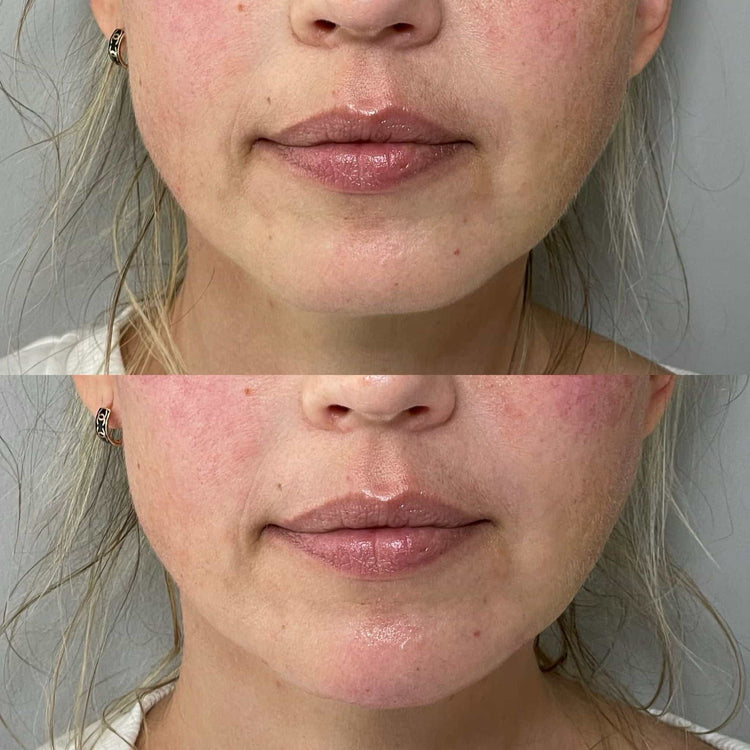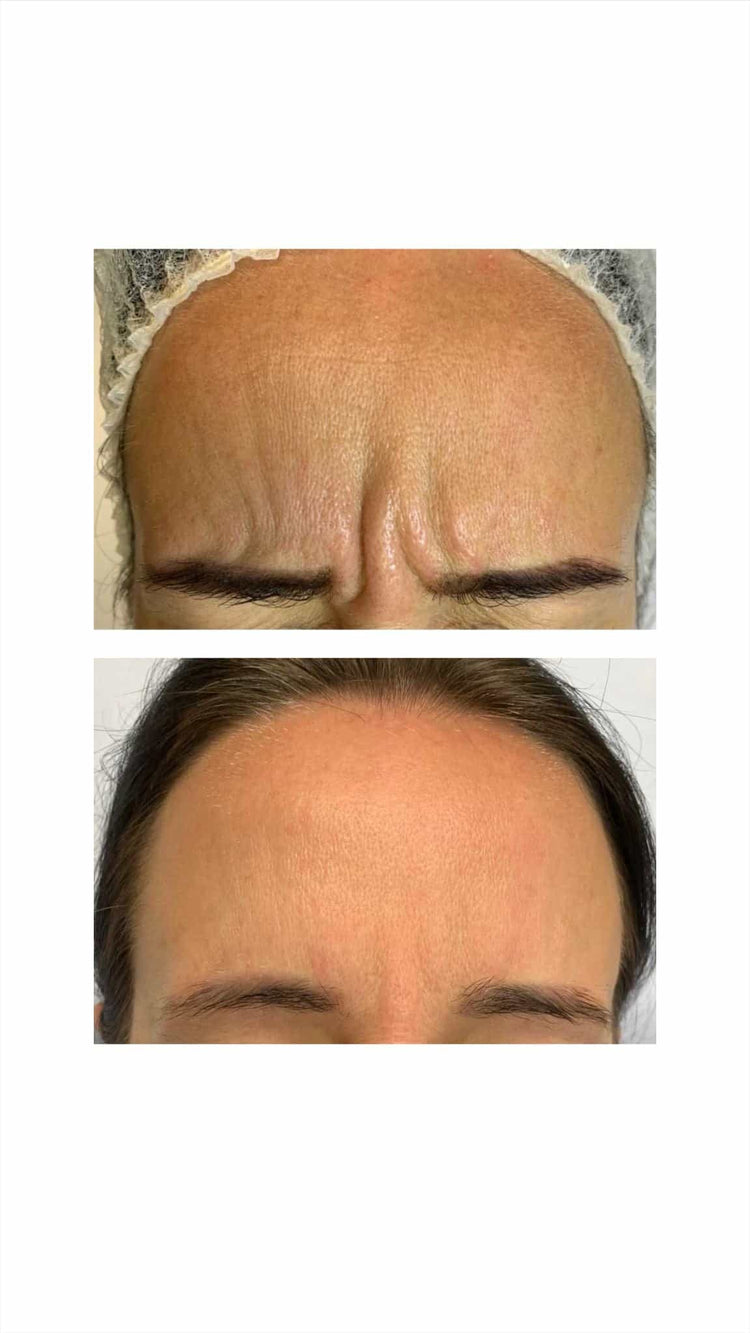Factors Influencing Reversibility
The reversibility of cosmetic treatments, particularly anti-wrinkle injections, is a subject of much interest and speculation. Numerous factors influence the duration and potential for reversal of these effects. Understanding these factors is crucial for patients considering anti-wrinkle injections, as it allows them to make informed decisions about their aesthetic goals and manage expectations regarding treatment outcomes.
Type of Anti-Wrinkle Injection
Several factors can influence the reversibility of anti-wrinkle injections. The type of anti-wrinkle injection used plays a significant role. Botulinum toxin types A and B are commonly used, with botulinum toxin type A (e.g., Botox) generally having a shorter duration of effect than type B.
The dosage administered also impacts reversibility. Higher doses tend to last longer, while lower doses may be more temporary. The individual’s metabolism and body chemistry can affect the absorption and breakdown rate of the injected substance.
Factors such as age, skin type, and muscle activity in the treated area can also influence the duration of effects. Areas with greater muscle movement tend to metabolize the injection faster, leading to a shorter duration of action. Additionally, certain medical conditions or medications can interfere with the efficacy and reversibility of anti-wrinkle injections.
Duration Since Injection
Duration since injection is a critical factor in determining the possibility of reversing anti-wrinkle injections. The longer the toxin has been present in the muscle tissue, the more difficult it becomes to reverse its effects. This is because the toxin gradually binds to nerve endings and disrupts the transmission signals that cause muscle contractions.
In the early stages after injection, when the toxin has not yet fully bound to nerve endings, there may be a higher likelihood of partial or complete reversal. However, as time passes, the binding becomes more stable, making reversal increasingly challenging.
Individual Body Response
The reversibility of anti-wrinkle injections is influenced by several factors. The type and dosage of the injected substance play a crucial role. Botulinum toxin type A generally has a shorter duration of effect compared to type B. Higher dosages tend to last longer than lower dosages.
Individual body response also varies significantly. Metabolism, body chemistry, and muscle activity in the treated area can affect how long the effects last. Areas with more muscle movement tend to metabolize the injection faster.
Age, skin type, and underlying medical conditions can also influence the outcome. The duration since the injection is a significant factor. Reversing effects becomes more difficult as time passes because the toxin binds more strongly to nerve endings, disrupting muscle contractions.
In the early stages after injection, when binding is not yet complete, there may be a higher chance of partial or complete reversal. However, over time, the binding becomes more stable, making reversal increasingly challenging.

Methods for Potential Reversal
The potential for reversing the effects of anti-wrinkle injections is a multifaceted issue influenced by several key factors.
Lifestyle Changes
One method to potentially reverse anti-wrinkle injection effects involves the administration of certain enzymes called acetylcholinesterase inhibitors. These enzymes help break down acetylcholine, a neurotransmitter involved in muscle contraction. By blocking the breakdown of acetylcholine, these inhibitors can partially restore muscle function and diminish the smoothing effect caused by the toxin.
Lifestyle changes can also play a role in managing the duration and appearance of anti-wrinkle injections. Maintaining a healthy lifestyle with proper hydration, adequate sleep, and a balanced diet can promote skin health and potentially enhance the body’s natural metabolism.
Regular exercise, especially facial exercises, may help stimulate blood flow to the treated area and encourage muscle activity, which could contribute to a more gradual fading of the injection effects. However, it is important to consult with a qualified medical professional before implementing any new exercise routines.
Diet and Hydration
Several methods have been explored for potentially reversing anti-wrinkle injections. One approach involves the administration of acetylcholinesterase inhibitors, which are enzymes that help break down acetylcholine. By inhibiting the breakdown of acetylcholine, these enzymes can partially restore muscle function and reduce the smoothing effect caused by the toxin.
Lifestyle modifications can also play a role in managing the duration and appearance of anti-wrinkle injections.
Maintaining adequate hydration is crucial for overall skin health and may help promote better circulation, potentially influencing how the body processes the injected substance. A balanced diet rich in vitamins and antioxidants can support healthy skin function and potentially aid in the natural breakdown of the toxin.
Regular exercise, particularly facial exercises, may stimulate blood flow to the treated area and encourage muscle activity, which could contribute to a more gradual fading of the injection effects.
Facial Massage Techniques
Several methods have been explored for potentially reversing anti-wrinkle injections. One approach involves the administration of acetylcholinesterase inhibitors, which are enzymes that help break down acetylcholine. By inhibiting the breakdown of acetylcholine, these enzymes can partially restore muscle function and reduce the smoothing effect caused by the toxin.
Lifestyle modifications can also play a role in managing the duration and appearance of anti-wrinkle injections. Maintaining adequate hydration is crucial for overall skin health and may help promote better circulation, potentially influencing how the body processes the injected substance. A balanced diet rich in vitamins and antioxidants can support healthy skin function and potentially aid in the natural breakdown of the toxin.
Regular exercise, particularly facial exercises, may stimulate blood flow to the treated area and encourage muscle activity, which could contribute to a more gradual fading of the injection effects.
Facial massage techniques have also been suggested as a potential method for mitigating the effects of anti-wrinkle injections. While scientific evidence supporting this claim is limited, proponents suggest that gentle massage can help stimulate blood flow and lymphatic drainage in the facial area, potentially aiding in the dispersal and breakdown of the injected substance.
Exercise
The reversibility of anti-wrinkle injections is influenced by several key factors.
One method to potentially reverse anti-wrinkle injection effects involves the administration of certain enzymes called acetylcholinesterase inhibitors. These enzymes help break down acetylcholine, a neurotransmitter involved in muscle contraction. By blocking the breakdown of acetylcholine, these inhibitors can partially restore muscle function and diminish the smoothing effect caused by the toxin.
- Lifestyle changes can also play a role in managing the duration and appearance of anti-wrinkle injections.
- Maintaining adequate hydration is crucial for overall skin health and may help promote better circulation, potentially influencing how the body processes the injected substance.
- A balanced diet rich in vitamins and antioxidants can support healthy skin function and potentially aid in the natural breakdown of the toxin.
- Regular exercise, particularly facial exercises, may stimulate blood flow to the treated area and encourage muscle activity, which could contribute to a more gradual fading of the injection effects.
Topical Treatments
Several methods have been explored for potentially reversing anti-wrinkle injections. One approach involves the administration of acetylcholinesterase inhibitors, which are enzymes that help break down acetylcholine. By inhibiting the breakdown of acetylcholine, these enzymes can partially restore muscle function and reduce the smoothing effect caused by the toxin.
Lifestyle modifications can also play a role in managing the duration and appearance of anti-wrinkle injections. Maintaining adequate hydration is crucial for overall skin health and may help promote better circulation, potentially influencing how the body processes the injected substance.
A balanced diet rich in vitamins and antioxidants can support healthy skin function and potentially aid in the natural breakdown of the toxin. Regular exercise, particularly facial exercises, may stimulate blood flow to the treated area and encourage muscle activity, which could contribute to a more gradual fading of the injection effects.
Facial massage techniques have also been suggested as a potential method for mitigating the effects of anti-wrinkle injections. While scientific evidence supporting this claim is limited, proponents suggest that gentle massage can help stimulate blood flow and lymphatic drainage in the facial area, potentially aiding in the dispersal and breakdown of the injected substance.
Retinol Creams
Retinol creams are often discussed in the context of potential reversal of anti-wrinkle injections due to their ability to promote skin cell turnover and collagen production. However, it’s important to note that retinol creams do not directly reverse the effects of the toxin.
While retinol creams cannot directly undo the muscle paralysis caused by anti-wrinkle injections, they can contribute to a more youthful appearance over time by improving skin texture, reducing fine lines and wrinkles, and boosting collagen synthesis.

By supporting overall skin health, retinol creams may help minimize the appearance of any lingering effects from the injections as they gradually fade.
Hyaluronic Acid Serums
Hyaluronic acid serums are a popular skincare ingredient often discussed in the context of anti-wrinkle treatments. Hyaluronic acid is a naturally occurring substance in the skin that helps retain moisture, plumping up the skin and reducing the appearance of fine lines and wrinkles.
While hyaluronic acid serums don’t directly reverse the effects of anti-wrinkle injections, they can potentially minimize their appearance and contribute to smoother skin as the injections gradually fade.
By hydrating and plumping the skin, hyaluronic acid may help soften any remaining wrinkles or creases that are still visible after the injection has worn off.
Enzyme-Based Therapies
Enzyme-based therapies represent a potential avenue for reversing the effects of anti-wrinkle injections. Acetylcholinesterase inhibitors are enzymes that can help restore muscle function by preventing the breakdown of acetylcholine, a neurotransmitter essential for muscle contractions.
By inhibiting acetylcholinesterase, these enzymes allow acetylcholine to remain active longer, potentially partially reversing the smoothing effect caused by botulinum toxin. However, it’s important to note that enzyme-based therapies may not completely reverse the effects and require careful consideration and guidance from a qualified medical professional.
Limitations and Considerations
The reversibility of anti-wrinkle injections is a complex issue influenced by numerous factors. Understanding these factors is crucial for patients seeking information about this procedure.
Effectiveness of Reversal Methods
Limitations and considerations regarding the reversal of anti-wrinkle injections are crucial for patients to understand.
- The effectiveness of reversal methods varies depending on several factors, including the type and dosage of the injected substance, the duration since injection, individual body response, and the specific method used for reversal.
- Some methods, such as acetylcholinesterase inhibitors, may partially restore muscle function but are unlikely to completely reverse the effects.
- Lifestyle changes like hydration and exercise can help manage the duration and appearance of the injections but won’t directly reverse them.
It is essential for patients to have realistic expectations about reversal and to consult with a qualified medical professional to discuss their individual circumstances and potential options.
Potential Side Effects
Limitations and considerations regarding the reversal of anti-wrinkle injections are crucial for patients to understand.
- The effectiveness of reversal methods varies depending on several factors, including the type and dosage of the injected substance, the duration since injection, individual body response, and the specific method used for reversal.
- Some methods, such as acetylcholinesterase inhibitors, may partially restore muscle function but are unlikely to completely reverse the effects.
- Lifestyle changes like hydration and exercise can help manage the duration and appearance of the injections but won’t directly reverse them.
It is essential for patients to have realistic expectations about reversal and to consult with a qualified medical professional to discuss their individual circumstances and potential options.
Consult with a Medical Professional
Limitations and considerations regarding the reversal of anti-wrinkle injections are crucial for patients to understand. The effectiveness of reversal methods varies depending on several factors, including the type and dosage of the injected substance, the duration since injection, individual body response, and the specific method used for reversal.
Some methods, such as acetylcholinesterase inhibitors, may partially restore muscle function but are unlikely to completely reverse the effects. Lifestyle changes like hydration and exercise can help manage the duration and appearance of the injections but won’t directly reverse them.
It is essential for patients to have realistic expectations about reversal and to consult with a qualified medical professional to discuss their individual circumstances and potential options.
Enquire about non-invasive wrinkle treatments at It’s Me & You Clinic with Dr. Laura Geige
- Why Can’t You Smoke After Lip Filler - November 12, 2025
- What Is The Best Filler For Chin And Jawline? - November 10, 2025
- What Are THC Drinks And How Do They Work? - November 7, 2025

